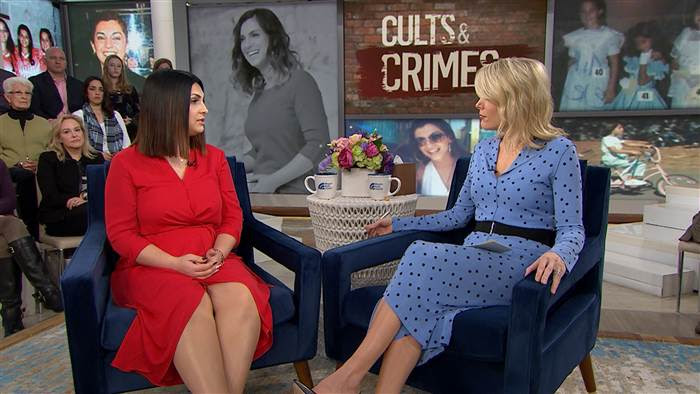January 25, 2018
TODAY's Megyn Kelly Spotlights Sex Trafficking
National Slavery and Human Trafficking Prevention Month is in full swing, and as part of the Megyn Kelly TODAY series "Selling Girls," (Feb. 23rd air date) Megyn featured three women who have walked in the shoes of a sex slave. Each courageously tells of her personal experience of being lured into trafficking and sold for sex, and thankfully, each survivor was able to turn these horrific experiences into positive ways to help others in the life.

I encourage you to take time to watch these segments. Not only will you get a deeper look into the epidemic of sex trafficking from these first-hand accounts, you will also be compelled to action as they reiterate what at we at Enough is Enough (EIE) has been saying all along--We need to continue to push for the aggressive enforcement of the existing federal laws designed to prevent the sexual exploitation of women and children online--including sex trafficking laws, as spelled out in the Children's internet Safety Presidential Pledge signed by President Trump.
To that end, EIE continues to support the Stop Enabling Sex Trafficking Act (SESTA) designed to ensure JUSTICE for sex trafficking victims and ensure websites like Backpage.com can be held liable and brought to justice for knowingly facilitating sex trafficking. Folks, whenever we put PROFIT over human dignity and value, we have a PROBLEM. You can help us solve this problem by letting your state representatives know that you want them to support SESTA. You can click here for information to contact your elected officials.
COSMOPOLITAN Magazine Tackles Harms of Pornography!
Hats off to Cosmopolitan Magazine--known for its racy sex articles that push the envelope farther than one could imagine--for publishing: Why Public Health Scholars Should Study Pornography (Feb. 22, 2018).
The article's author, public health researcher and teacher Emily Rothman, referred to Utah's governor declaring pornography a public health crisis (2016), stating, "Personally, I do think pornography is a public health issue; it has implications for sexual and reproductive health promotion, and violence prevention."
The 16-18 year old's she interviewed revealed responses as to why Rothman made this conclusion. Themes that emerged included:
- teens had seen a wide variety of porn (bondage, three-ways, humiliation porn, incest porn, "rape porn," among others
- most watched it because they were curious/wanted to know how sex worked – what to do
- several had experienced some painful and uncomfortable sex because their partners wanted to imitate pornography
- their parents didn’t know how to talk to them about pornography.
Among other findings, her follow-up study revealed that "pornography was the number one source of information about sex for the teens in this sample."
Friends, it's so important that we take the time to talk to our kids early on about the harms of pornography. If we don't, they may turn to pornography as their one and only source of information, which could have devastating life-long effects.
Click here to access "Conversation Starters" which will help guide you in discussing pornography with your child, and check other resources available in this section. EIE also has a vast resource center for Recovery, Survivors & Victims. It's never too early to start the discussions.

President & CEO
Enough Is Enough®
